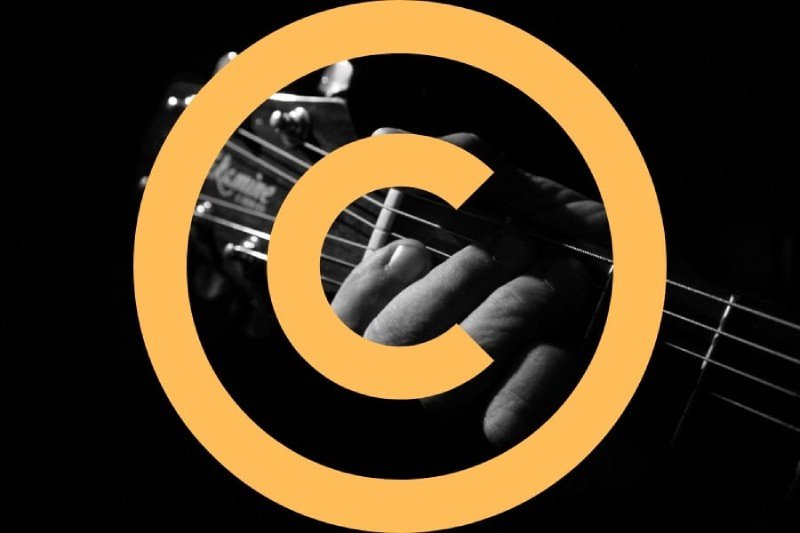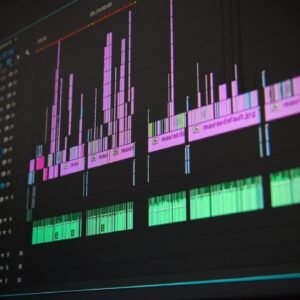I’ve had a friend or two ask me how long does music copyright last? I thought to myself “well, everyone should know how long does music copyright last” but then I remembered my mom asking me about it only yesterday! So, being the good son I am, I figured that I might as well write a blog post on the subject.
In this article, I will talk about “How Long Does Music Copyright Last”. Let’s start.
Question #2: How Long Does Copyright Last?
Question #2: How Long Does Copyright Last?
The length of time that you own your copyrights depends on when your work was created. The following chart shows the copyright term in years and the year in which it expires:
Work Created Before 1978
The Copyright Act of 1976 extended the duration of copyright protection to the life of the author plus 50 years, or 70 years for works made for hire. For works created before 1978, this means that copyrights expire between 1949 and 2019. The chart below lists some common works subject to state law (as shown by the asterisk), but most pre-1978 works are protected under federal law.
Question #2: How Long Does Copyright Last?
The law requires that you register your copyrights to get protection. But with or without registration, your work is protected as soon as it is created in a tangible form (such as written down), and you own the rights to it.
You can renew your copyright after 28 years to extend its term for another 95 years. Or if you let it lapse, you must start over from scratch at the beginning of the next calendar year.
If you have let your copyright lapse and want to re-register it, here’s what you do:
1. You must send a new application, Form VA (renewal application) to register your work again. That form includes a fee ($35 for individual works; $65 for corporate works). You can find the form on the Copyright Office’s website at www.copyright.gov/forms/.
2. You also have to include an “adequate” copy of your work with the application or send it later on request by mail or electronically (see below).
Related
The general rule is that a songwriter’s copyright in a song lasts for 70 years after the person’s death.
When an artist dies, the copyrights for their work are owned by their heirs. Sometimes, when an artist has been very prolific (like Elvis Presley or Michael Jackson), there may be dozens of people who can claim ownership of the rights to that person’s music. In these cases, it can take some time for the rights to be sorted out.
If the artist died before 1978, then the songs they wrote will enter public domain in 2067. That means that anyone can use them without permission or royalties — which is why we get so many covers of oldies on YouTube!
The length of copyright protection varies by country and type of work, but it’s generally between 50 and 70 years.
Copyright is a form of intellectual property that gives creators exclusive rights to their work. It allows them to control the way their work is used, either by giving or withholding permission for others to use it.
The length of the copyright period varies from country to country and from type of work to type of work. In general, the length varies between 50 and 70 years after the death of the creator.

Public Domain: Duration
Copyright lasts for the length of the author’s life, plus an additional 70 years. However, if you are in doubt as to whether a work is still protected, you should seek legal advice.
Public Domain: Duration
A work enters the public domain when it is no longer protected by copyright. This means that anyone can use, copy and distribute the work without anyone else’s permission. The duration of protection under copyright law varies from country to country (and even within countries) but is typically between 50 and 100 years after an author dies.
Public Domain: Duration
Public domain is a situation where the rights to use the work are no longer protected by law. The most common example is when an author dies, and their works enter the public domain. In contrast, if there is a living author who created something new (e.g., a song), then that work will not be in the public domain until 70 years after death of author.
Duration of Copyright Protection
The duration of copyright protection depends on what country you live in and what kind of work it is (e.g., song or book). In general, copyright lasts for at least 70 years after the death of the author for most countries (see information about duration below).
Copyright Bite #1
Copyright Bite #1
According to the United States Copyright Office, a copyright lasts for the life of the author plus 70 years. So if you write a book or record an album, that work is protected by copyright until 70 years after your death.
Copyright Bite #2
This is not the case in all countries. In the US, musical compositions are copyrighted as soon as they are written down or recorded (but not before). In other countries like Canada and Mexico, musical compositions are protected under law but there is no official registration process. This means that in those countries it’s possible for someone else to claim ownership of your work even if there’s no evidence of who wrote it first (or if there were multiple authors involved).
Copyright Bite #1
Copyright in a musical work lasts for the life of the author plus 70 years. This means that if you write a song, you own the copyright to that song for 70 years after your death. If you perform the song, then you’re only entitled to control it for 50 years from when you first recorded it.
Copyright Bite #2
The same rules apply to sound recordings and performances as they do to musical works. In addition, there is an additional 50-year period during which recordings are protected under state laws (but not federal law). So if you record a song and release it on CD, vinyl or cassette tape, then the copyright owner can control your recording for 95 years after creation (50+70) rather than 50 years after first release like with musical compositions.

Copyright In Smes
Copyright In Smes
The duration of copyright protection for sound recordings is not the same as it is for other creative works. The Copyright Act provides sound recordings with protection for 50 years from the year they were published. As a result, if you want to use a sound recording on your website or in your business, you should get permission from the copyright owner.
For example, if you want to use a song by The Beatles on your website, you should get permission from EMI Music Publishing Ltd., who owns the rights to that song.
Copyright protection for sound recordings lasts for 70 years. The length of time is the same as for most other works. Copyright protection for a musical composition lasts for 95 years from its first publication or 120 years from the date of creation, whichever comes first.
In the case of unpublished works, copyright protection begins on January 1st following the year in which the author dies. In other words, if an author dies in 2080, his or her unpublished work will now be protected until 2090.
FAQs for How Long Does Music Copyright Last
Now that you understand “How Long Does Music Copyright Last”, let’s move on to the FAQ section.
How Long Does Music Copyright Last
There are two aspects of music copyright:
The first is the composition (the actual notes and chords). The second is the sound recording (the master recording).
Composition copyright lasts for 70 years after the death of the last surviving composer. If a piece was written by more than one person, it’s considered a collaboration and the copyright expires 70 years after the death of the last surviving co-author.
Sound recordings are protected for 95 years from publication or 120 years from creation, whichever date is latest.
So if you wrote a song in 1970, your composition copyright would expire in 2089. If you recorded it as a demo in 1971 and published it as an album in 1972, your sound recording copyright would expire in 2091.
Music copyright laws have changed quite a bit over the years. In the past, songs were protected for a maximum of 28 years after they were published, but this was extended to 70 years in 1998.
So, if your song was published in 1957, it will enter the public domain in 2057 (as long as you get all your paperwork done on time). If your song was published in 1988, it will enter the public domain in 2088.
However, there are some exceptions to this rule:
If a songwriter died before 1 July 1909 and their work was published between 1 January 1964 and 31 December 1987 (or 1 January 1968 for sound recordings), it may still be under copyright until 2028. In that case, the copyright would expire on 31 December 2027.
If the songwriter died after 1 July 1909 and their work was published between 1 January 1964 and 31 December 1987 (or 1 January 1968 for sound recordings), it may still be under copyright until 2038. In that case, the copyright would expire on 31 December 2037.
How Long Does Music Copyright Last In Us
Copyright protection for music begins when the work is created in a tangible form, such as on paper, or recorded on audio or video. As long as the work exists in that form, it is protected by copyright law.
The length of time that a song can be copyrighted varies from country to country. In the United States, for example, a song’s copyright lasts for 70 years after the death of the author if they are an individual or 50 years after publication if they are an organization (such as a corporation).
A composer who writes a song and sells it to another person or company usually retains rights to income generated by the song after its initial sale. This is called “mechanical rights” because they apply when someone wants to reproduce the music mechanically — i.e., record it on a CD or download it onto an MP3 player. The copyright owner has the right to collect royalties whenever their music is played on the radio or streamed online; they also have the right to authorize other people to create new recordings of their song, even if those new recordings aren’t exactly like their original version of it.
How Long Does Music Copyright Last Uk
How Long Does Music Copyright Last Uk
The duration of copyright protection depends on where you are in the world. In the United Kingdom, music copyright lasts 70 years after the death of the composer or last surviving writer.
Copyright protection starts from the date of creation of a musical work, not from when it is first published. So if a song is written in 1950, but not published until 1960, then it will be protected until 2080 (70 years after the death of its composer).
How Long Does Music Copyright Last?
Music copyright lasts for the life of the composer plus 70 years. The length of copyright varies in different countries, but it’s generally similar for books, films and other artistic works.
According to the World Intellectual Property Organization (WIPO), most countries have a term of life plus 70 years for musical works. This is known as the “Berne Convention.” However, there are some exceptions:
In the United States and Canada, copyright lasts 95 years from publication or 120 years from creation, whichever comes first.
In Germany, music is protected by “Urheberrecht” for life plus 70 years (or sometimes 100 years).
How Long Does Music Copyright Last In Australia
How Long Does Music Copyright Last In Australia
Music copyright lasts for 70 years after the death of the composer. This means that when a song is written, the songwriter will retain copyright to the music (and lyrics) until 70 years after they die.
In Australia, the term of protection is calculated from 1 January 1949 (the date on which Australia became a member of the Berne Convention). The duration of protection has been extended on two occasions: firstly by 10 years in 1998 and again by 20 years in 2006.
How Many Years Does Music Copyright Last
How Many Years Does Music Copyright Last?
Music copyright lasts for a long time. You can use the rule of thumb that if you write and record a song, then it will be copyrighted for your lifetime plus 70 years. If you publish your own work, it is copyrighted for 95 years after publication.
When Does Music Copyright Begin?
The moment you write a song down or record it in some way, you have created what is called an “original work of authorship” that is protected by copyright law. The moment that song is published anywhere (on CD, in print, on the internet), the copyright clock begins ticking.
If you want to be really technical about it, you should register for copyright as soon as possible after creating your work because registration does not extend the term of protection beyond the life of its creator plus 70 years (or 95 years).
How Long Does Music Copyright Last For
How long does music copyright last for?
The answer is very simply, as long as you are alive. If you write a song, it will belong to you for the rest of your life. This means that if you die tomorrow, anyone who has ever heard your song can still perform it without having to pay you any royalties.
However, once you die, your heirs have the right to continue making money from your songs by exploiting them in various ways (such as by selling CDs). If they do not exploit these rights after a certain period of time has passed, then they lose their right to do so and other people can start exploiting them instead.
Music copyright lasts for 70 years after the death of its last living author.
The main laws that govern music copyright are the Copyright Act 1968 and Copyright, Designs and Patents Act 1988. These two pieces of legislation protect musical works (including lyrics) written by a composer or lyricist, or a publisher who has acquired the rights from them.
Music copyright lasts for 70 years from when it was published or performed live in public for the first time (whichever is later). This means that if you are writing your first song today, in 2088 it will enter the public domain.
Conclusion for How Long Does Music Copyright Last
Both the federal law, copyright law and the state law all have their role in protecting music, thus determining how long does music copyright last. If you are interested in suing someone for his/her music theft, you must be aware of how long your claims would last and when to stop it.
Thank you for reading, and I hope you get the point of “How Long Does Music Copyright Last”. If not, please contact me or leave a comment below. I would be pleased to help in any way I can.





